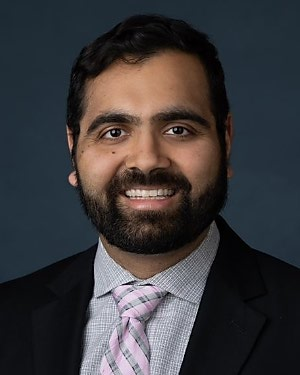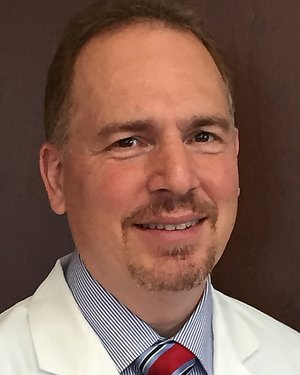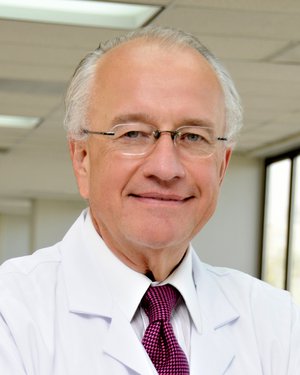Research Lab Results
-
Alain Labrique Lab
The Alain Labrique Lab conducts research on infectious diseases and public health. Our team studies the various factors that lead to maternal and neonatal mortality, particularly in underserved populations in South Asia, using the tools of infectious disease epidemiology, molecular biology and biostatistics. We work to better understand factors such as the interface of micronutrient deficiency and maternal/infant mortality and the prevention of nosocomial infections through mechanistic or nutritional interventions. We also have a longstanding interest in technologies that may enable early detection of disease.
Principal Investigator
-
Amit Pahwa Lab
The Amit Pahwa Lab conducts research on a variety of topics within internal medicine. Our most recent studies have explored misanalysis of urinalysis results, urinary fractional excretion indices in the evaluation of acute kidney injury and nocturnal enuresis as a risk factor for falls in older women. We also investigate cancer diagnostics and treatments. In this area, our recent research has included studying cutaneous shave biopsies for diagnosing primary colonic adenocarcinoma as well as growth inhibition and apoptosis in human brain tumor cell lines using selenium.
-
Aliaksei Pustavoitau Lab
The Aliaksei Pustavoitau Lab conducts research on models and mechanisms of impaired consciousness in patients who have suffered acute brain injury. Examples of our work include a study on the mechanisms of neurologic failure in critical illness and another on the use of intensivist-driven ultrasound at the PICU bedside. We also have a longstanding interest in patient safety and quality of care in the ICU setting.
Principal Investigator
Department
-
Ayse Gurses Lab
Work in the Ayse Gurses Lab examines several topics related to human factors, including methods for improving patient safety in the cardiac operating room, care coordination, transitions of care and compliance of providers with evidence-based guidelines. Our team also has an interest in research that explores the working conditions of nurses. We collaborate on studies related to the development of geriatrics health service delivery at all levels of the health system.
-
J. Marie Hardwick Laboratory
Our research is focused on understanding the basic mechanisms of programmed cell death in disease pathogenesis. Billions of cells die per day in the human body. Like cell division and differentiation, cell death is also critical for normal development and maintenance of healthy tissues. Apoptosis and other forms of cell death are required for trimming excess, expired and damaged cells. Therefore, many genetically programmed cell suicide pathways have evolved to promote long-term survival of species from yeast to humans. Defective cell death programs cause disease states. Insufficient cell death underlies human cancer and autoimmune disease, while excessive cell death underlies human neurological disorders and aging. Of particular interest to our group are the mechanisms by which Bcl-2 family proteins and other factors regulate programmed cell death, particularly in the nervous system, in cancer and in virus infections. Interestingly, cell death regulators also regulate many other cellular processes prior to a death stimulus, including neuronal activity, mitochondrial dynamics and energetics. We study these unknown mechanisms. We have reported that many insults can trigger cells to activate a cellular death pathway (Nature, 361:739-742, 1993), that several viruses encode proteins to block attempted cell suicide (Proc. Natl. Acad. Sci. 94: 690-694, 1997), that cellular anti-death genes can alter the pathogenesis of virus infections (Nature Med. 5:832-835, 1999) and of genetic diseases (PNAS. 97:13312-7, 2000) reflective of many human disorders. We have shown that anti-apoptotic Bcl-2 family proteins can be converted into killer molecules (Science 278:1966-8, 1997), that Bcl-2 family proteins interact with regulators of caspases and regulators of cell cycle check point activation (Molecular Cell 6:31-40, 2000). In addition, Bcl-2 family proteins have normal physiological roles in regulating mitochondrial fission/fusion and mitochondrial energetics to facilitate neuronal activity in healthy brains.
Principal Investigator
Department
-
Janet Siliciano Lab
Research in the Janet Siliciano lab focuses on HIV. Areas of study include CD4-positive T lymphocytes, virus latency and highly active antiretrovirals. We recently explored the challenges of detecting HIV persistence during potentially curative interventions and the multifactorial nature of HIV-1 latency.
-
Jean Kim Lab
The Jean Kim Laboratory performs translational research in the area of chronic rhinosinusitis, with a niche interest in the pathogenesis of hyperplastic nasal polyposis. Studies encompass clinical research to basic wet laboratory research in studying the underlying immune and autoimmune mediated mechanism of polyp growth and perpetuation of disease. Human cell and tissue culture models are used. Techniques in the laboratory include cell and tissue culture, real time PCR, immunoblot, ELISA, flow cytometry, immunohistochemistry, electron microscopy, gene array analysis, and other molecular approaches including genetic knockdowns. Approaches used in Dr. Kim’s clinical study designs include prospective and retrospective analysis of patient outcomes and clinical biomarkers, as wells controlled clinical trials.
-
John Ulatowski Lab
Research in the John Ulatowski Lab explores the regulatory mechanisms of oxygen delivery to the brain and cerebral blood flow. Our work includes developing and applying new techniques and therapies for stroke as well as non-invasive techniques for monitoring brain function, fluid management and sedation in brain injury patients. We also examine the use of novel oxygen carriers in blood. We’ve recently begun exploring new methods for perioperative and periprocedural care that would help to optimize patient safety in the future. -
Jonathan Orens Lab
Research in the Jonathan Orens Lab examines topics such as clinical outcomes of lung transplantation, chronic allograft rejection and ischemic reperfusion injury, also known as primary graft dysfunction.
-
Joel Pomerantz Laboratory
The Pomerantz Laboratory studies the molecular machinery used by cells to interpret extracellular signals and transduce them to the nucleus to affect changes in gene expression. The accurate response to extracellular signals results in a cell's decision to proliferate, differentiate or die, and it's critical for normal development and physiology. The dysregulation of this machinery underlies the unwarranted expansion or destruction of cell numbers that occurs in human diseases like cancer, autoimmunity, hyperinflammatory states and neurodegenerative disease. Current studies in the lab focus on signaling pathways that are important in innate immunity, adaptive immunity and cancer, with particular focus on pathways that regulate the activity of the pleiotropic transcription factor NF-kB.

